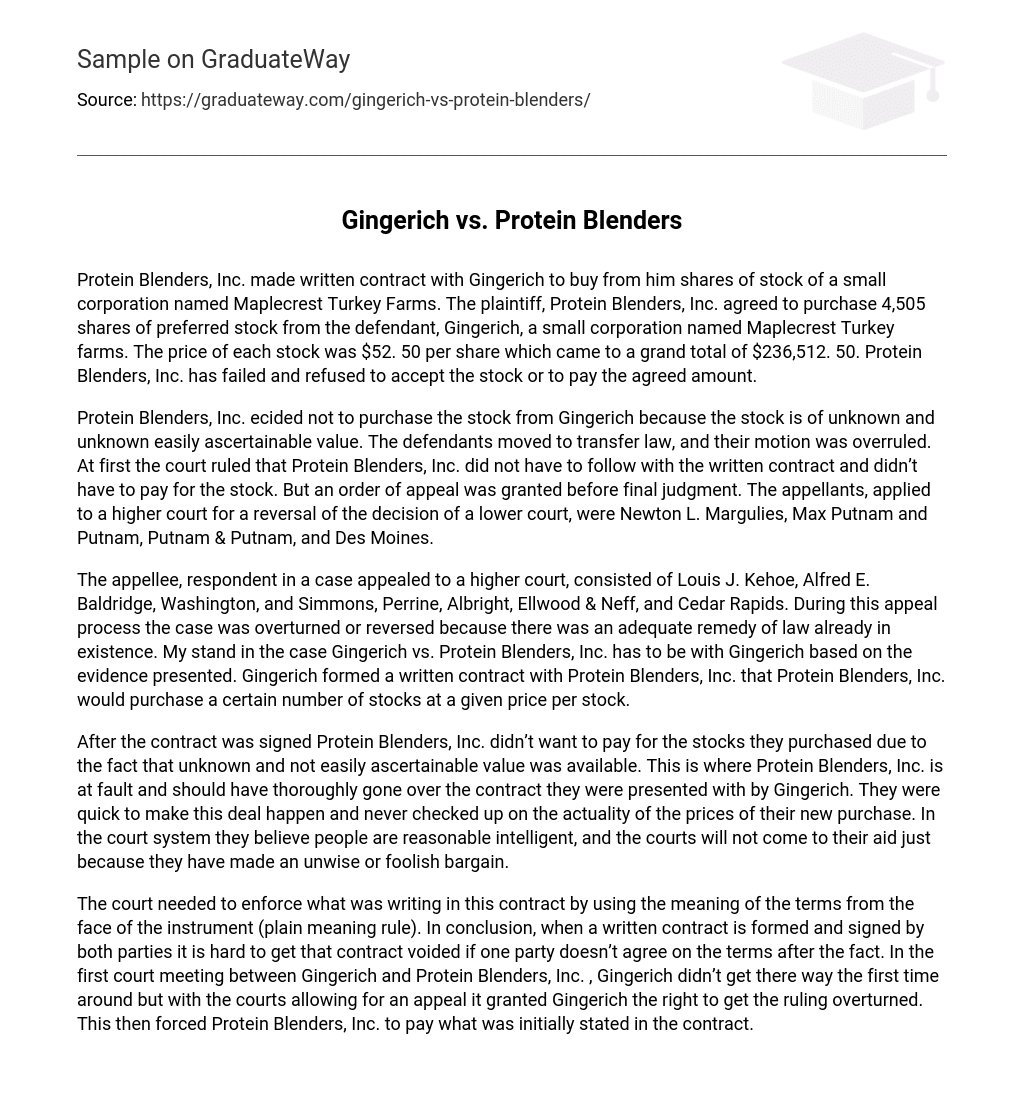Protein Blenders, Inc. entered into a written contract with Gingerich to acquire shares of stock from Maplecrest Turkey Farms, a small corporation. The plaintiff, Protein Blenders, Inc., agreed to purchase 4,505 preferred shares from the defendant, Gingerich, at a price of $52.50 per share, resulting in a total amount of $236,512.50. However, Protein Blenders, Inc. has failed to fulfill their agreement by declining to accept the stock and failing to make the agreed payment.
Protein Blenders, Inc. decided not to purchase Gingerich’s stock because its value was uncertain and difficult to determine. The defendants attempted to transfer the case to another court but were unsuccessful in doing so. Initially, the court ruled that Protein Blenders, Inc. was not obligated to honor the written contract and did not have to pay for the stock. However, before a final judgment could be reached, an appeal was granted by Newton L. Margulies, Max Putnam, and Putnam, Putnam & Putnam as well as Des Moines who appealed to a higher court with hopes of overturning the lower court’s decision.
The appellee in the case appealed to a higher court consisted of Louis J. Kehoe, Alfred E. Baldridge, Washington, and Simmons, Perrine, Albright, Ellwood & Neff, and Cedar Rapids. However, the case was reversed during the appeal process as there was already a sufficient legal remedy available. In my opinion, based on the evidence presented, I support Gingerich in the case against Protein Blenders, Inc. Gingerich and Protein Blenders, Inc. had entered into a written contract for the purchase of a specific number of stocks at an agreed price per stock.
Protein Blenders, Inc. failed to fulfill their financial obligation after signing the contract, claiming that the value of the purchased stocks was unknown and not easily determined. The company is responsible for this oversight and should have carefully reviewed the contract provided by Gingerich. They hastily agreed to the deal without verifying the actual prices of their acquisition. Within the legal system, it is expected that individuals are reasonably intelligent and the courts will not provide assistance solely due to an imprudent or foolish agreement.
The court had to enforce the terms written in the contract using the plain meaning rule. In summary, when a written contract is formed and both parties sign it, it becomes difficult to invalidate the contract if one party does not agree with the terms later on. During the initial court meeting between Gingerich and Protein Blenders, Inc., Gingerich did not initially succeed. However, the court permitted an appeal, allowing Gingerich to have the ruling overturned. As a result, Protein Blenders, Inc. was compelled to pay what was originally stated in the contract.





